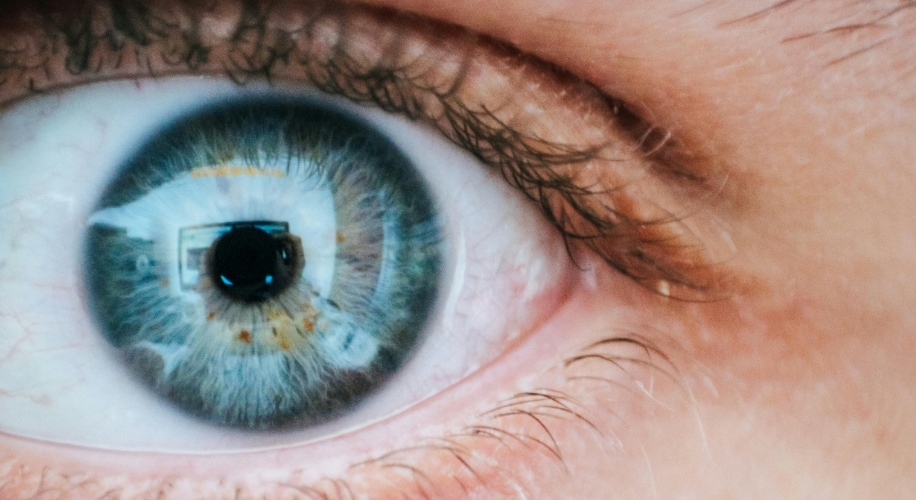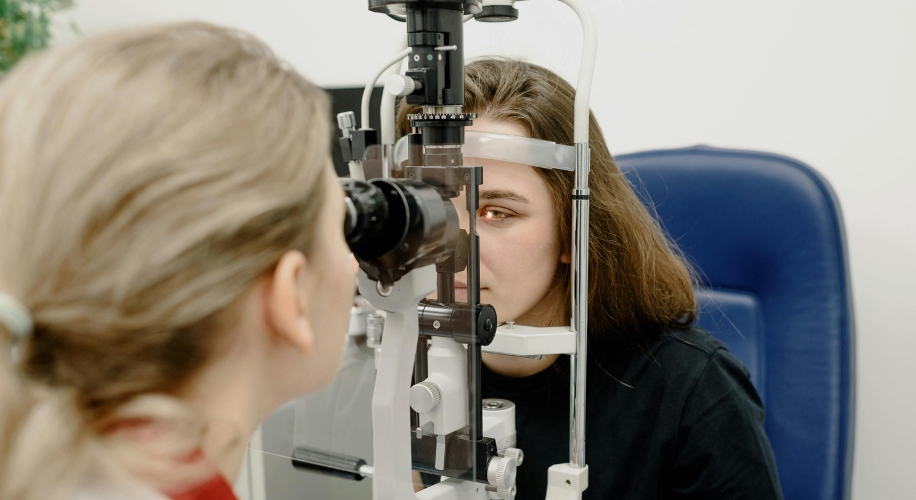What Causes Blurry Vision?
Blurry vision, often described as a lack of sharpness or clarity in sight, can significantly impact your daily life. Whether it affects one eye or both, this condition can make simple tasks—like reading, driving, or enjoying your favorite activities—challenging and frustrating. Beyond the inconvenience, blurry vision can also signal underlying health issues that require attention. Understanding its causes is crucial for maintaining good eye health and ensuring timely intervention. In this blog, we’ll delve into the various factors that contribute to blurry vision, how to recognize the symptoms, and the treatment options available to restore clarity to your sight.
Photo by Felix Mittermeier
Common Causes of Blurry Vision
Blurry vision can arise from a range of factors. Here are some of the most common causes:
1. Refractive Errors
Refractive errors are the most common reason for blurry vision. These occur when the eye does not bend light correctly, leading to distorted images. The main types include:
- Myopia (Nearsightedness): Myopia causes distant objects to appear blurry while close objects remain clear. This condition occurs when the eyeball is too long or the cornea is too curved.
- Hyperopia (Farsightedness): Hyperopia makes close objects appear blurry while distant ones remain clear. It typically results from an eyeball that is too short or a cornea that is too flat.
- Astigmatism: Astigmatism results from an irregularly shaped cornea or lens, causing blurred vision at all distances.
- Presbyopia: Presbyopia is an age-related condition where the eye’s lens loses elasticity, making it difficult to focus on close objects.
2. Eye Conditions
Certain eye conditions can lead to blurred vision:
- Cataracts: Cataracts develop when the eye’s lens becomes cloudy, leading to progressively blurry vision. They are commonly age-related but can also result from trauma or prolonged steroid use.
- Glaucoma: Glaucoma refers to a group of diseases that damage the optic nerve, often associated with increased eye pressure. Blurry vision may occur as the disease progresses.
- Macular Degeneration: Age-related macular degeneration (AMD) affects the retina’s center and can cause central vision loss, resulting in blurriness.
- Diabetic Retinopathy: This condition, resulting from diabetes, damages blood vessels in the retina, leading to blurred vision and potentially severe vision loss.
Photo by Victor Freitas
3. Neurological Issues
Some neurological conditions can affect vision clarity:
- Multiple Sclerosis (MS): MS can cause optic neuritis, inflammation of the optic nerve, leading to sudden blurry vision or vision loss.
- Stroke: A stroke can impact areas of the brain responsible for vision, resulting in blurry or double vision.
4. Systemic Health Issues
Several systemic conditions can contribute to blurry vision:
- Diabetes: Diabetes can lead to fluctuations in blood sugar levels, causing temporary blurry vision. Over time, it can lead to diabetic retinopathy, as mentioned earlier.
- Hypertension: High blood pressure can affect blood vessels in the eye, potentially leading to blurred vision.
- Autoimmune Disorders: Conditions like lupus or rheumatoid arthritis can affect the eyes and lead to blurry vision due to inflammation.
5. Eye Strain and Fatigue
Prolonged use of digital devices can cause digital eye strain, leading to blurry vision. Symptoms often include:
- Dry Eyes: Insufficient tear production can lead to dry eyes, causing discomfort and blurriness.
- Fatigue: Extended periods of visual strain can result in eye fatigue, making it hard to maintain clear vision.
- Difficulty Focusing: Inability to focus clearly can stem from various factors, including refractive errors or eye strain.
6. Environmental Factors
Environmental factors can also contribute to blurry vision:
- Dry Eye Syndrome: Dry eye syndrome occurs when the eyes do not produce enough tears, leading to irritation and blurry vision.
- Allergies: Allergic reactions can cause eye irritation and blurred vision, often accompanied by redness and itching.
Photo By: Kaboompics.com
When to Seek Medical Attention
While blurry vision can be temporary and benign, it is essential to seek medical attention when:
- Blurriness occurs suddenly
- You experience pain in your eyes
- You notice flashes of light or floaters
- Blurriness is accompanied by other symptoms like headaches or dizziness
Diagnosing the Cause of Blurry Vision
A comprehensive eye exam is vital for diagnosing the underlying cause of blurry vision. An eye care professional may conduct:
- Visual Acuity Test: This measures how well you see at different distances.
- Refraction Assessment: This test determines the appropriate lens prescription needed to correct refractive errors.
- Tonometry: Tonometry measures eye pressure, which is crucial for diagnosing conditions like glaucoma.
- Imaging Tests: In some cases, imaging tests like optical coherence tomography (OCT) or fundus photography may be necessary to examine the retina and optic nerve.
Photo by Ksenia Chernaya
Treatment Options for Blurry Vision
The treatment for blurry vision varies depending on the underlying cause:
- Corrective Lenses: For refractive errors, glasses or contact lenses can provide clear vision.
- Medications: If blurry vision is caused by an underlying medical condition, treating that condition may resolve the vision issues. For example, controlling blood sugar levels in diabetes can improve vision.
- Surgery: Surgical options are available for conditions like cataracts and refractive errors. Cataract Surgery involves removing the cloudy lens and replacing it with an artificial one. Procedures like LASIK or PRK can reshape the cornea to correct refractive errors.
- Eye Drops: Artificial tears can relieve dry eyes, while prescription drops may be necessary for conditions like glaucoma.
Preventing Blurry Vision
While not all causes of blurry vision are preventable, some steps can reduce the risk:
- Regular Eye Exams: Schedule regular eye exams to catch potential issues early.
- Maintain a Healthy Lifestyle: Eating a balanced diet rich in fruits, vegetables, and omega-3 fatty acids can support eye health. Regular exercise and managing chronic conditions like diabetes and hypertension are also essential.
- Protect Your Eyes: Use protective eyewear during activities that could cause eye injury and practice good hygiene when using contact lenses.
Photo by kei photo
Conclusion
Blurry vision can stem from a variety of causes, ranging from simple refractive errors requiring glasses to more serious medical conditions. Understanding these causes and recognizing when to seek medical help is crucial for maintaining good eye health. By staying informed and proactive, you can take steps to prevent and manage blurry vision effectively. If you experience persistent blurry vision, consult an eye care professional to determine the best course of action for your situation.









 Canada
Canada